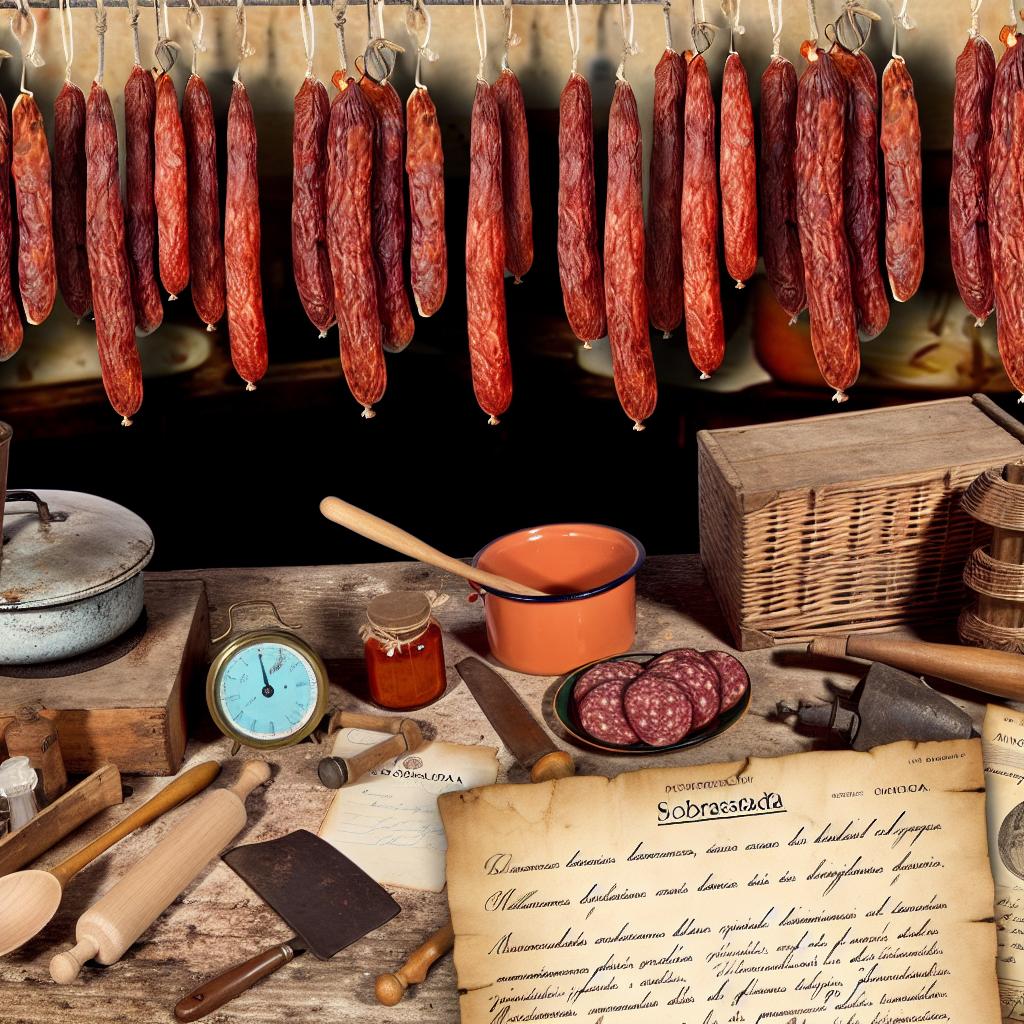
Sobrasada is a traditional cured sausage that originates from the Mediterranean island of Mallorca, part of the Balearic Islands in Spain. Its origins can be traced back to the 15th century when the influence of Mediterranean trade and culture began to impact Mallorcan gastronomy. This period saw an increased use of pimentón, a Spanish paprika, which became a fundamental element in preserving and flavoring meats.
The introduction of paprika in Spain is attributed to the Columbian Exchange. As trade routes flourished across the Mediterranean, various culinary techniques and ingredients spread, including those critical to the development of sobrasada. Paprika—a key spice brought from the Americas—allowed for the longer preservation of meats, essential in a time when refrigeration was unavailable. The infusion of new spices and practices from different regions not only enhanced preservation but also added a unique dimension to the flavors that would become characteristic of sobrasada.
The introduction of these spices revolutionized the local cuisine. Just as pimentón became integral in sobrasada, it also found its way into various other Mallorcan dishes, illustrating the profound impact of these exchanges. The aromatic spices enhanced the flavor profiles of meats and dishes, allowing for the creation of distinctive culinary aromas and tastes that define the region’s gastronomy.
Sobrasada’s distinct flavor and preservation method centers around the use of pork, pimentón, salt, and in some variations, black pepper. The process involves finely grinding the pork, mixing it with paprika and other spices, and then stuffing it into a natural casing. This careful mixture is then left to cure naturally, which could take several months under the right conditions. During this period, beneficial molds begin to form on the surface of the sausage. These molds play a critical role in developing the complex flavors of sobrasada, while also aiding in its preservation.
The traditional preparation of sobrasada is meticulous and heavily reliant on the quality of its ingredients. The balance of flavors achieved through the careful selection of spices reflects generations of culinary knowledge. This balance is not easily replicated outside the region due to the specific microclimate of Mallorca, which further solidifies sobrasada as a unique product of its place.
Sobrasada is protected by a Geographical Indication (GI) status, which ensures that production methods adhere to traditional practices specific to the region. This GI status not only acknowledges its cultural significance but also maintains its unique quality. This designation signifies more than just a culinary tradition; it embodies the identity of Mallorca’s gastronomic heritage. The strict regulatory framework guarantees that every step of sobrasada’s production respects the age-old methods passed down through generations.
The protection afforded by the GI status is vital in preserving the authenticity of sobrasada, ensuring that mass production does not compromise its quality. It protects the cultural heritage, supporting local producers and allowing Mallorca to continue sharing its culinary art with the world. Those interested in the specifics of this protected designation can find deeper insights at the Spanish Ministry of Agriculture’s website.
Today, sobrasada is enjoyed across Spain and internationally, often spread over bread, used in cooking, or paired with cheese. Despite modern adaptations, its heart remains the deep-rooted traditions of Mallorcan cuisine, reflecting centuries of culinary evolution influenced by broader Mediterranean civilizations. This enduring legacy positions sobrasada as an emblematic product of the Balearic Islands, embodying the rich tapestry of cultural exchange and regional identity.
Sobrasada’s versatility has ensured its continual adaptation within contemporary cuisines, enabling it to maintain its relevance on modern tables. Restaurants and home cooks alike find innovative ways to incorporate it into dishes, blending traditional and modern culinary techniques. Despite these adaptations, the fundamental essence of sobrasada—its rich history and distinctive flavor—remains preserved.
In conclusion, sobrasada represents more than just a culinary delight; it is a testament to the profound influence of global trade and cultural exchanges on regional cuisines. It is a celebration of Mallorca’s historical legacy and continues to capture the essence of the Mediterranean through its authentic flavors. The journey of sobrasada from its humble beginnings to a significant cultural emblem underscores the importance of preserving and cherishing regional traditions in an ever-globalizing world.